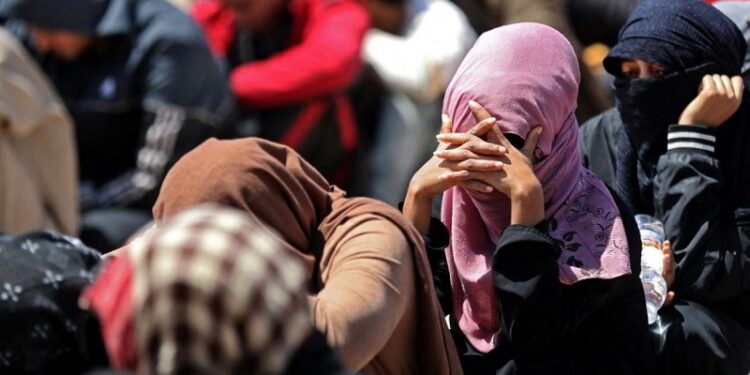A UN fact-finding mission has said the European Union “aided and abetted” Libyan authorities’ crimes against migrants.
A new report from the UN will be released and presented to the Human Rights Council later this week. According to the report, crimes against humanity were carried out against migrants in detention centres. The report is based on interviews with 400 people including migrants and witnesses, along with photographs and videos.
“Although we’re not saying that the EU and its member states have committed these crimes. The point is that the support given has aided and abetted the commission of the crimes,” Chaloka Beyani, one of the independent mission’s members, said.
The EU and member states have supported and trained the Libyan coastguard, which returns migrants to detention centres. They have also funded Libyan border management programmes.
The vast majority of people attempting the Mediterranean crossing pass through war-torn Libya. According to Human Rights Watch (HRW), 32,450 people were intercepted by Libyan forces in 2021 and “hauled back to arbitrary detention and abuse” in the country.
‘Consolidation of power and wealth by militias’
The UN mission said it would pass any evidence of war crimes and crimes against humanity to the International Criminal Court. According to the mission, militia groups have carried out murders, rapes, enslavement, judicial killings, and forced disappearances.
“The violations and abuses investigated by the mission were connected primarily to the consolidation of power and wealth by militias and other state-affiliated groups,” the report said.
“Trafficking, enslavement, forced labour, imprisonment, extortion and smuggling of vulnerable migrants generated significant revenue for individuals, groups and state institutions.”
In 2022, the EU was criticised for using a drone to help Libyan forces intercept boats carrying migrants in the Mediterranean.
The drone, which operated out of EU member Malta, played a “crucial role” in detecting boats leaving Libya, information that the EU’s border agency, Frontex, then hands to the Libyan coastguard, HRW said.
“Frontex claims the surveillance is to aid rescue, but the information facilitates interceptions and returns to Libya… [despite] overwhelming evidence of torture and exploitation of migrants and refugees in Libya,” HRW said in a statement.
Source: Middle East Eye






 WhatsApp us
WhatsApp us 

